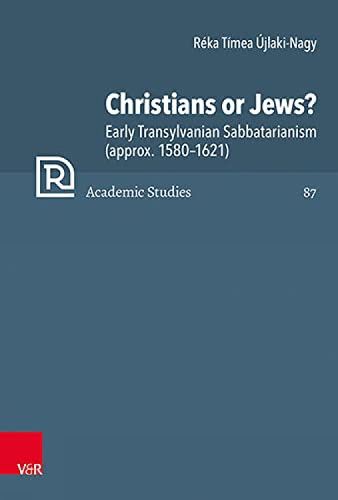Readings Newsletter
Become a Readings Member to make your shopping experience even easier.
Sign in or sign up for free!
You’re not far away from qualifying for FREE standard shipping within Australia
You’ve qualified for FREE standard shipping within Australia
The cart is loading…






Transylvanian Sabbatarianism emerged from the aspirations of the Reformation, without direct contact with the Jews. Although the most frequently asked question about them concerns their identity - were they Christians or Jews - the answers of the literature are superficial, biased, and take only an external point of view. The aim of this book, therefore, is to move closer to the 16-17th century Sabbatarian manuscripts and to examine how much they were still connected to Christianity in their biblical interpretations, doctrines and religious practices, how they adapted to Judaism, and how they saw themselves in relation to the two world religions. The analysis of Reka Timea Ujlaki-Nagy shows that although they still held some Christian beliefs, these were considered to be incidental and unnecessary to salvation. Sabbatarians followed the ideal of an age preceding Christ, consequently the Reformation effort to restitute apostolic Christianity disappeared from their religious thought.
$9.00 standard shipping within Australia
FREE standard shipping within Australia for orders over $100.00
Express & International shipping calculated at checkout
Transylvanian Sabbatarianism emerged from the aspirations of the Reformation, without direct contact with the Jews. Although the most frequently asked question about them concerns their identity - were they Christians or Jews - the answers of the literature are superficial, biased, and take only an external point of view. The aim of this book, therefore, is to move closer to the 16-17th century Sabbatarian manuscripts and to examine how much they were still connected to Christianity in their biblical interpretations, doctrines and religious practices, how they adapted to Judaism, and how they saw themselves in relation to the two world religions. The analysis of Reka Timea Ujlaki-Nagy shows that although they still held some Christian beliefs, these were considered to be incidental and unnecessary to salvation. Sabbatarians followed the ideal of an age preceding Christ, consequently the Reformation effort to restitute apostolic Christianity disappeared from their religious thought.